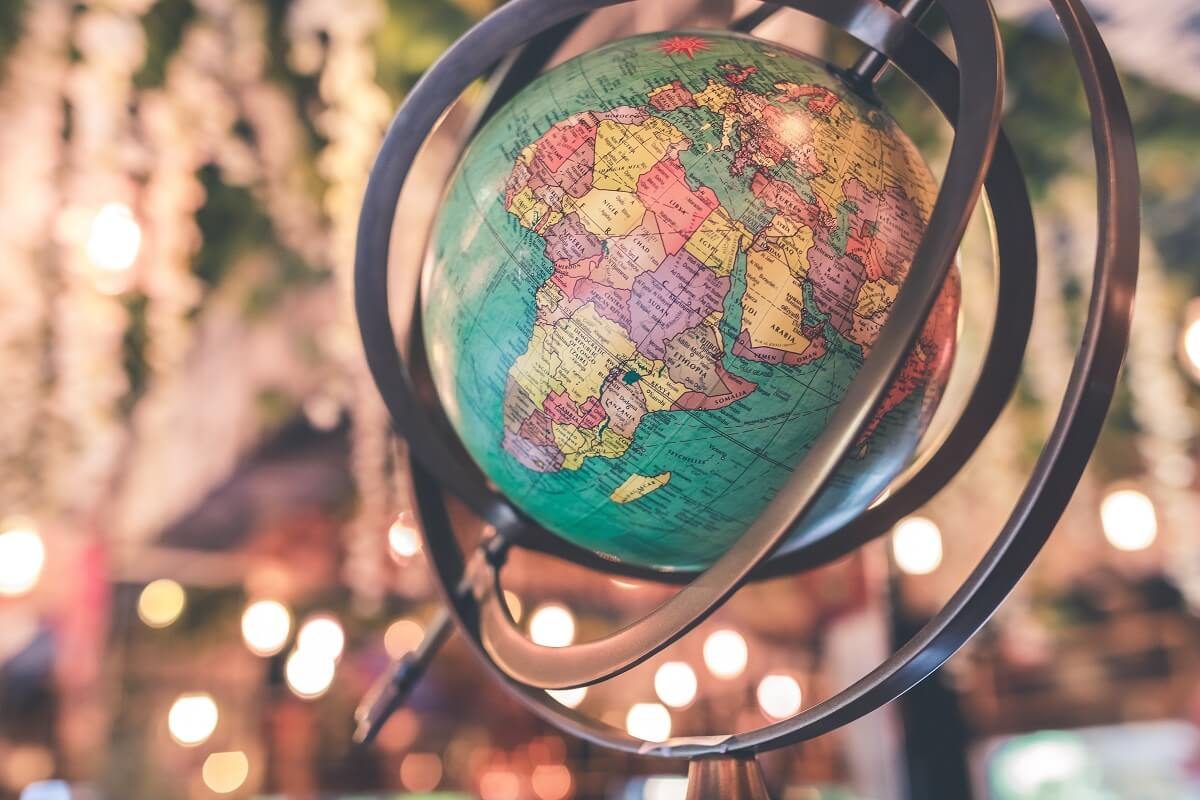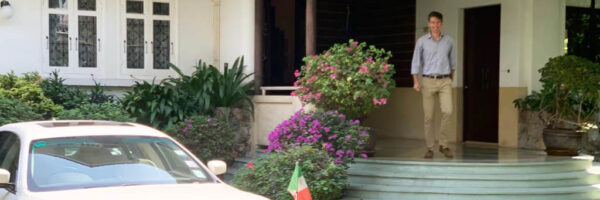
The winds of change
by Barbara Lewis
Do you ever look around you and know that you are the ‘foreigner’ the different one in the room? Do you ever wake up and wonder where you are or it takes a few moments for you to orient yourself to where exactly you are in the world at that particular moment? Do you know more than one language and live in a country where English is spoken as a second language but is the common denominating language amongst so many?
Do you walk to your car to get in to drive and have to think which side the steering wheel is on? When you are driving, do you have to think hard or use other car traffic as a guide for which side of the street you should be driving on? Do you often look the wrong way when crossing the street? Or better yet are you completely shocked when pedestrians do have the right of way and cars stop to let you cross the street? Do you wonder how it is possible to get so many things done in so little time: maintaining a household, shopping for food, cooking meals, cleaning, etc. without help?
Do you wonder if someone overheard you and members of your family talking about various vacations you have taken or will take, how pretentious you sound? Do you wonder if anyone has a complete medical history of you even yourself since you have been to so many doctors in so many different countries, as well as every other member of your family?
The answers to the questions above in the positive give rise to the characteristic expat. Recently one of the key psychological, sociological, political and neurological expletives that have become theoretical buzz is ontological security. Ontological security according
to (Giddens 1991) Wikipedia is a stable mental state derived from a sense of continuity in regard to the events in one’s life. Giddens refers to a sense of order and continuity in regard to an individual’s experiences. He argues that this is reliant on people’s ability to give meaning to their lives. Meaning is found in experiencing positive and stable emotions and by avoiding chaos and anxiety (ibid; Elias, 1985).
All humans have the need for ontological security but it would seem just by the nature of how expats must construct their world and make sense of it their need for ontological security is much less.
A perfect example was a dinner conversation between my husband and a friend; they were chatting about retirement, both in their late 50s, it is fast approaching. Our friend could look ahead and chose what year he wanted to retire and really from an employment perspective what that would look like, his payout and retirement package etc.
For my husband things are not that simple. We are Canadian so we are not residents of Canada for tax purposes. We do not know how much longer we will remain overseas that is in the hands of my husband’s employer. We hope that we will stay overseas for a while longer. We do not have a residence in Canada, which is part of our non-resident status.
In fact, we do not have a residence that we own anywhere. USA citizens are taxed worldwide so for them it does not matter, they are taxed on citizenship but if you come from a country where you are taxed based on residency then of course you will chose more than likely to make sure you are meeting the requirement to remain tax free however in doing so one keeps their world in a constant state of a certain amount of instability emotionally and physically.
Our friend can plan how much money he will be getting and from where. Our sources are a little less certain as it is generally what we have saved and invested and a portion to come from company saving but essentially nothing from the government. Since we don’t own a residence we have to take that into account also in our retirement plans and we have to determine where based on whether we want to be taxed under Canadian law or not; there is a great deal of ontological insecurity in all of this.
This is just one aspect of our lives as expats that builds ontological insecurity. I think that most expats have a great deal of ontological insecurity of some kind or another in their lives. A friend of mine recently moved from Bangkok to Hua Hin. She owns a house in Hua Hin but it isn’t the home she wants to live in year round. This move was somewhat unexpected. She had lived in Bangkok for 14 years and Thailand is their country of residence but recently she had found that where she lived in Bangkok expat area was not meeting her emotional needs so she actually moved to Hua Hin for a more stable, friendly community that she and her husband could grow with. She went looking for more ontological security.
Expats deal with ontological insecurity constantly from where to find the correct ingredients for a recipe for a dinner party that you made last month but now suddenly you cannot find what you need anywhere in the city to who you can take your disabled child to for help with his/her disability to buying a pure bred dog off the internet, etc. Our lives are a constant source or renegotiation: how and where will we spend the holidays, what are the weekend days, what traditions are we allowed to practice without breaking the law, etc. Expatriates live in a constant state of negotiation and learning to be flexible to change.

Expats, seem to have the unique characteristic of flexibility in the face of an ever changing environment. This flexibility seems to give them the skill to take what would be ontological insecurity and change it or modify/understand it in a way that allows for more ontological security, ease and comfort with surroundings that might not always be so easy to translate and understand.
Expats have the ability to sit in the grey zone for a longer period than the average human because they understand that they will eventually find a way to figure their surroundings out comfortably.
Recently Oprah interviewed Daniel H. Pink the author of “A New Mind” in which he postulates that movers and shakers of the world will be right brain thinkers or the people who use their more creative minds rather than their logical minds. Maybe that is what expats as a group are, people who navigate their worlds with their more creative minds and make ontological sense of it through their willingness to be flexible to difference and change.



